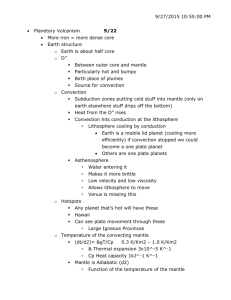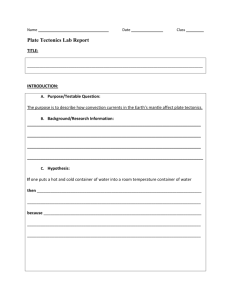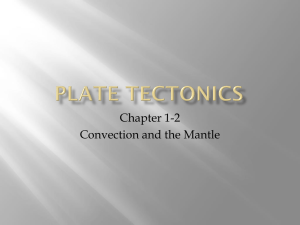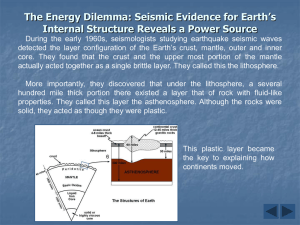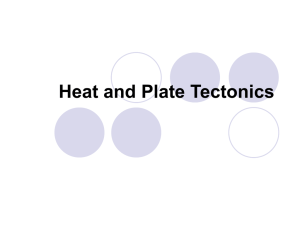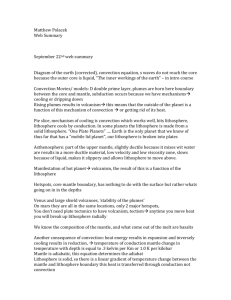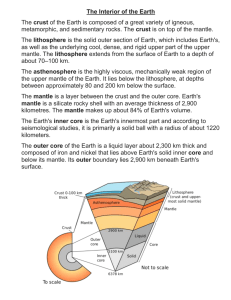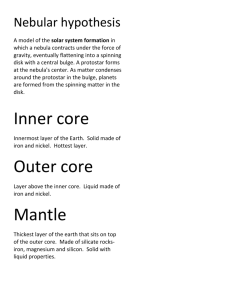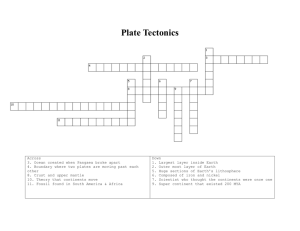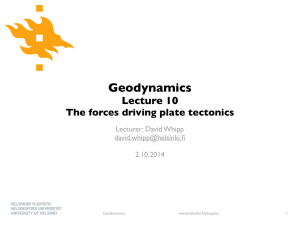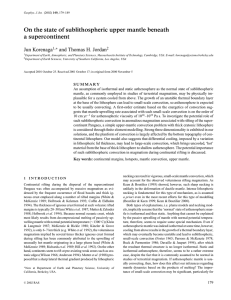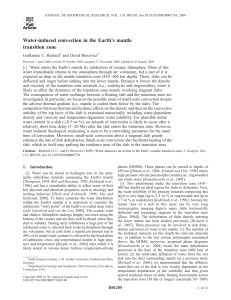ANGEO_ConvectionHandout_Nov30_NL
advertisement
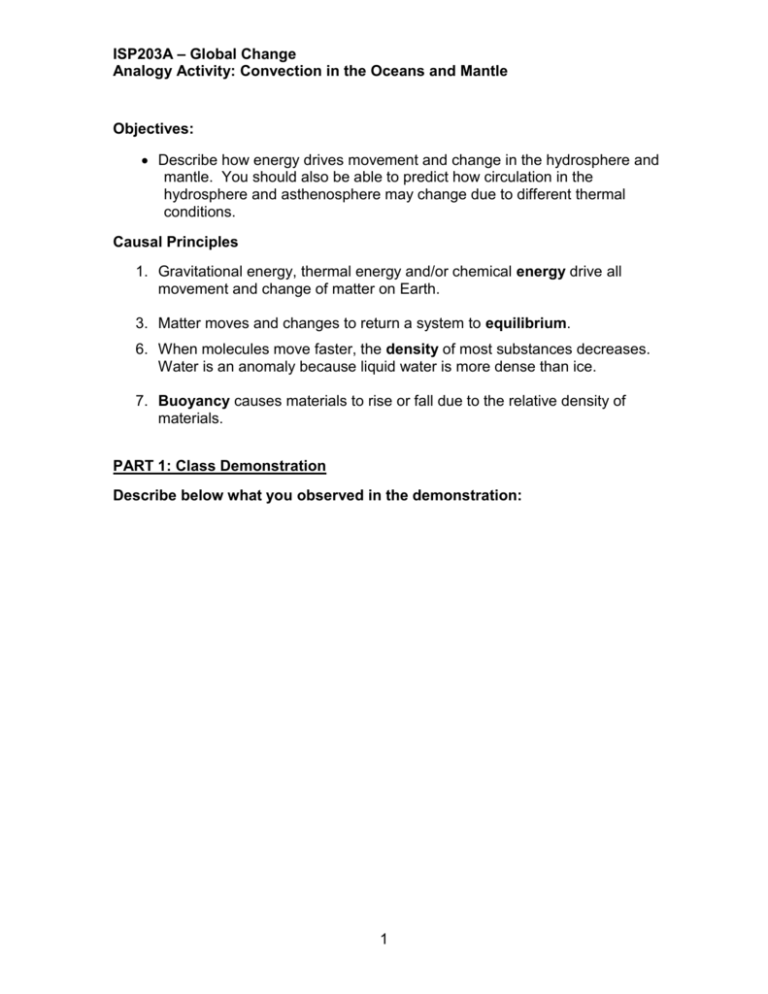
ISP203A – Global Change Analogy Activity: Convection in the Oceans and Mantle Objectives: Describe how energy drives movement and change in the hydrosphere and mantle. You should also be able to predict how circulation in the hydrosphere and asthenosphere may change due to different thermal conditions. Causal Principles 1. Gravitational energy, thermal energy and/or chemical energy drive all movement and change of matter on Earth. 3. Matter moves and changes to return a system to equilibrium. 6. When molecules move faster, the density of most substances decreases. Water is an anomaly because liquid water is more dense than ice. 7. Buoyancy causes materials to rise or fall due to the relative density of materials. PART 1: Class Demonstration Describe below what you observed in the demonstration: 1 ISP203A – Global Change Analogy Activity: Convection in the Oceans and Mantle Part 2: Group Work – Limits to the analogy While analogies are useful, there are also limits to their usefulness based on differences in features and/or relationships. 1. What is the major cause of density variation in the mantle? 2. What are the two major causes of density variation in the oceans? 3. Where is the heat source for the ocean convection? Where is the heat source for the mantle convection? 4. Based on your answer for question 1-3, how is ocean convection different from mantle/lithosphere convection? 5. The mantle flows at a rate of a few inches per year while ocean water my flows at a few inches a minute. Why are these flow rates different? 6. What could cause the flow rate of mantle convection to increase? 7. What could cause the flow rate of thermohaline circulation to increase? 2 ISP203A – Global Change Analogy Activity: Convection in the Oceans and Mantle Part 3: Homework - Inference Analogies help us make inferences. In this exercise, we hope the analogies between soup (mentioned in the homework reading: (http://pubs.usgs.gov/gip/dynamic/unanswered.html), the mantle and lithosphere cycling, and thermohaline circulation provide you with a better understanding of the mechanism of movement in the oceans and solid earth. As a test of this understanding, please answer the following question. Short Answer Questions What is slab pull? Why is density important for slab pull? Conclusion Question: Was slab pull or convection a more important mechanism for moving tectonic plates 3 billion years ago? Here’s some relevant information: Three billion years ago the earth’s interior was hotter than today because there was more radioactive material and original heat from the Earth’s formation 4.6 billion years ago. There were areas of oceanic lithosphere and continental lithosphere three billion years ago. Geologists have evidence that there was less continental lithosphere. There is evidence that the chemical composition of the oceanic and continental lithosphere were about the same as they are today. Explain your reasoning. 3
